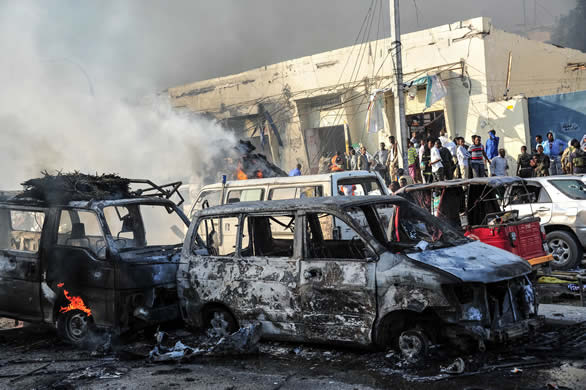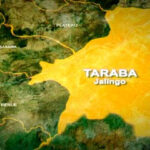
Eleven people, including the governor Ahmed Bulle Gared, were injured, he added.
There was no immediate claim of responsibility for the attack but the Islamist group, Al-Shabaab, remained a potent force in the troubled Horn of Africa nation despite multinational efforts to degrade its leadership.
Mohamud Saney, who witnessed Tuesday’s attack, said, they had “never heard anything as big as the explosion.”
“It shook the earth like an earthquake.”
Al-Shabaab has been waging a bloody insurgency against the central government in the fragile nation for about 15 years.
In recent months, the Somali army and local clan militias have retaken chunks of territory from the militants in an operation backed by US air strikes and an African Union force known as ATMIS.
Despite the gains by the pro-government forces, the militants have continued to demonstrate the ability to strike back with lethal force against civilian and military targets.
In the deadliest Al-Shabaab attack since the offensive was launched last year, 121 people were killed in two car bomb explosions at the education ministry in Mogadishu in October.
The UN last month said that 2022 was the deadliest year for civilians in Somalia since 2017, largely because of an increase in mass-casualty attacks by the jihadist group.
Although forced out of Mogadishu and other main urban centres more than a decade ago, Al-Shabaab remains entrenched in parts of rural central and southern Somalia.
AFP
All rights reserved. This material, and other digital content on this website, may not be reproduced, published, broadcast, rewritten or redistributed in whole or in part without prior express written permission from PUNCH.
Contact: [email protected]





